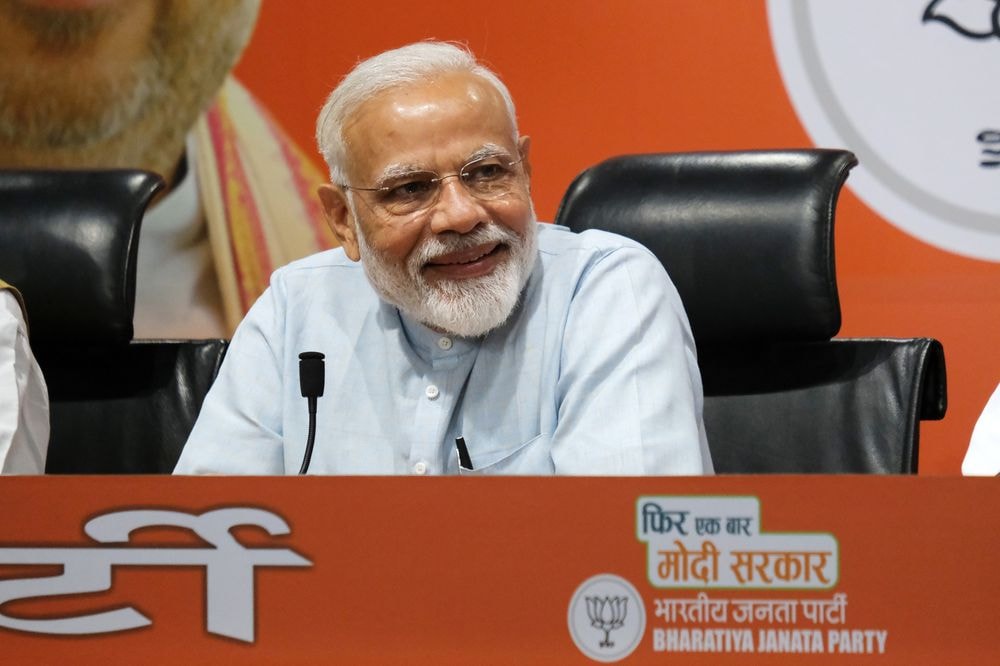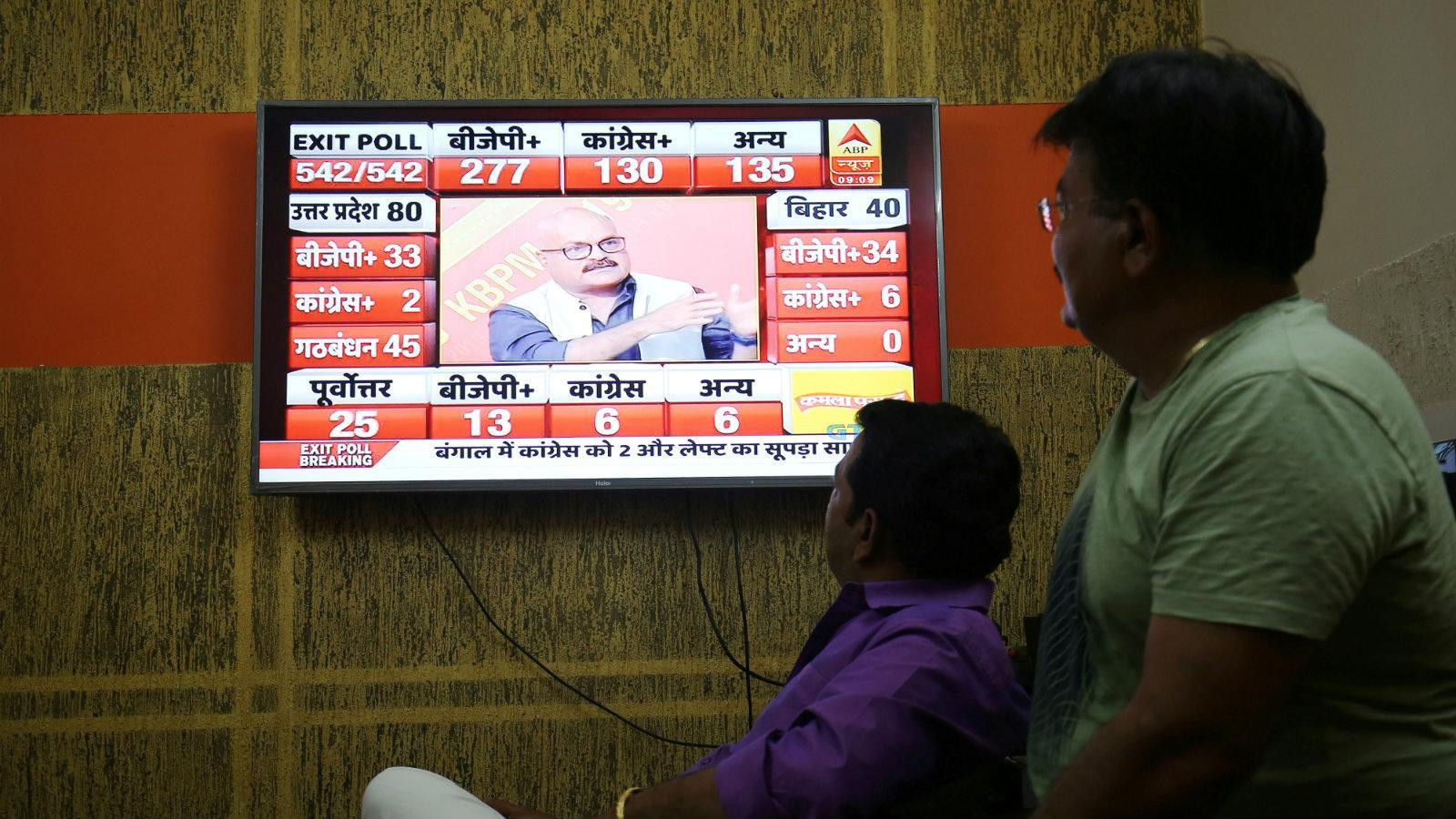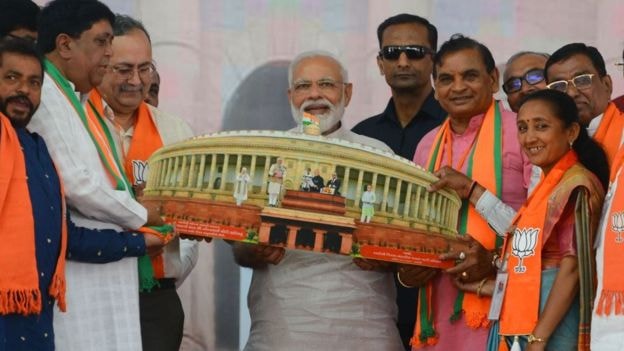Indian Elections - Prime Minister Modi's Party Remains 'Invincible'
(Baonghean) - The 17th Indian Parliamentary election has finally ended after more than a month with 7 rounds of voting. Although the official election results will not be announced until May 23, the polls show that there will be no surprises, and Prime Minister Narendra Modi's Bharatiya Janata Party (BJP) will repeat its performance after 5 years.
 |
| Prime Minister Narendra Modi's BJP is expected to win a landslide victory in the Lower House election (Bloomberg) |
“Stronghold” Narendra Modi
Right from the start, the Indian Lower House election was considered a "test" for Prime Minister Narendra Modi when the ruling National Democratic Alliance led by the Indian People's Party (BJP) had to compete fiercely with the opposition United Progressive Alliance led by the Congress Party.
In this election, about 900 million Indians will choose 543 seats. Any party or coalition that wins at least 272 seats will have the right to form a government. Exit polls after the end of 7 election phases have predicted an overwhelming victory for the BJP, with the number of seats the party won expected to be between 282 and 306 - at least 10 more than the minimum number of seats needed to form a government. Meanwhile, the Congress party only won between 118 and 142 seats.
Thus, the BJP party under the leadership of Prime Minister Narendra Modi has once again "restored glory" after a resounding victory in the 2014 election. This is also considered a personal victory of Mr. Narendra Modi over the leader of the Congress party Rahul Gandhi - the 4th generation of the Gandhi family who led India for 5 decades.
Analysts say that Prime Minister Narendra Modi’s clean personal image and drastic policies during his first term have earned him the trust of Indian voters. His most notable effort in 2016 was to eradicate “black money” – illegal money used in corrupt activities, because at that time, India was witnessing a wave of public anger when a series of corruption cases were continuously exposed.
Economically, over the past five years, the Indian economy has achieved an average growth rate of 7.3%, becoming the 6th largest economy in the world. Notably, Prime Minister Narendra Modi has strongly promoted the “Make in India” initiative to enhance the capacity of manufacturing industries, while attracting foreign direct investment and domestic labor.
This initiative has created a big buzz, bringing a new position for India in the global market and is often compared to China's "Made in China" plan. And in fact, India has been considered the "second factory" of the world, after China.
In the World Bank's ranking of countries improving business performance, India has made significant progress, climbing from 142nd to 77th place in the past 4 years. Therefore, by voting for the BJP, Indian voters also want to give Prime Minister Narendra Modi more time to implement unfinished reform policies.
The "security" card
Although India has achieved many achievements both domestically and internationally during Prime Minister Narendra Modi's first five-year term, there are still "gray areas" that make voters not really satisfied, most notably the high unemployment rate and the unimproved income of people in rural areas.
 |
| Indian people follow election results updates. Photo: India Times |
Although India's GDP growth is still above 7% annually, India still struggles to create jobs for the 1 million young people entering the labor market each month. Economists estimate that to meet the demand for jobs, India must achieve an economic growth rate of 8.5-10% per year.
According to data released by the Centre for Monitoring Indian Economy, the unemployment rate in India rose to 7.2% in February. Between 2016 and 2018, at least 5 million Indians lost their jobs, with urban youth being the hardest hit. Meanwhile, statistics show that Indian farmers' incomes last year fell to an 18-year low. That is why, during the election campaign, the Congress Party "focused" on the government's poor economic management and its inability to create jobs to attract voters.
However, Mr. Narendra Modi's campaign team was very wise in making strategic changes in the election campaign.
If in 2014, the BJP focused first on the goal of solving unemployment, this time the goal has been pushed to the secondary level. Instead, the BJP has put two other priorities on top: national security and counter-terrorism. The attack that occurred in the Kashmir region right before the election, killing 40 Indian soldiers, contributed to building voters' trust in the commitments to fight terrorism and ensure national security of Prime Minister Narendra Modi and the BJP, fueling the spirit of patriotism in this country of 1.3 billion people.
 |
| The election is seen as a personal test for Mr. Narendra Modi. Photo: Getty |
Polls show that Narendra Modi has a much higher approval rating than his rivals after the clash with Pakistan. Many Indian voters said they voted for Narendra Modi for the first time simply because they liked the way he handled the problem with Pakistan after the attack that killed 40 Indian soldiers.
But in addition to exploiting voters' anxiety about the territorial dispute in Kashmir with Pakistan, the focus on "security" has been carefully prepared by Mr. Modi's campaign team over the past time with a series of moves such as signing a contract to buy Rafale fighter jets from France, and earlier this year buying nearly 500 armored vehicles from Russia, including nearly 2 billion USD to equip new generation T-90MS tanks. And as if to "add flowers on brocade", just two weeks before the election, Mr. Modi solemnly announced to the entire Indian people that he had successfully shot down a satellite in low orbit, putting India's name on the list of space-conquering powers.
Analysts say that personal prestige and the government's policies over the past five years will help Prime Minister Narendra Modi and the BJP continue to rule the country for another five years, carrying with them the people's expectations of making India an economic and military power, building its position as a major country in the region and the world.
